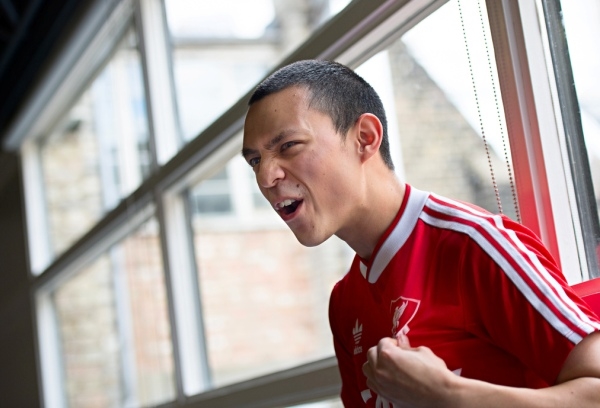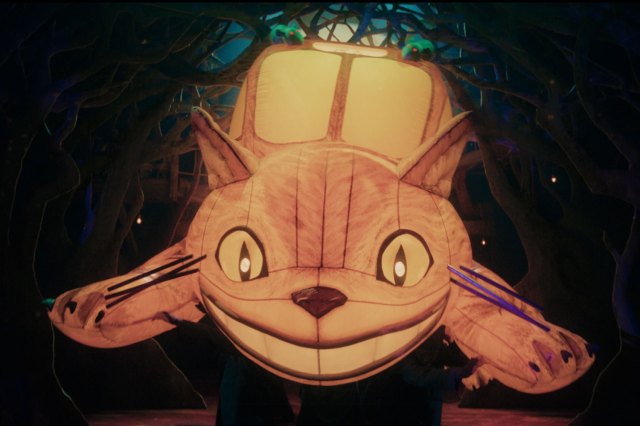Luke Barnes: 'Edinburgh really made a career as a writer possible for me'
Playwright Luke Barnes talks about the Edinburgh Fringe and his shows ”Bottleneck” and ”Beats North”

© Bill Knight
Bottleneck is back at the Fringe this year. Why do you think it has had such an impact on audiences?
I think the reason people resonated with Bottleneck was because it acknowledged first and foremost that audiences (especially at Edinburgh and at Soho Theatre) want to have a good time and they want their nights out to be fun and funny, and because of that, when the play reveals itself they have another level of emotional engagement.
Did your success in Edinburgh two years ago with Bottleneck and Chapel Street open up new opportunities for you as a writer?
Edinburgh really made a career as a writer possible for me. The freedom of what you can produce here really is a godsend for artists, because in Edinburgh we can say "here we are, this is what we make, this is what we want to talk about" and there are no limitations from producers, artistic directors, literary managers and other people. In a good process those people have a duty to help you refine your intention, make what you’re talking about clear and allow freedom to explore the theatrical language you’re using. In more commercial venues you have other factors to think about that just don’t apply here and all we’re left with is you, your mates and a story you want to tell in a room. Which is all theatre is in the first place. It’s the best place to start telling your stories in the way you want to.
Do you think the Fringe is still somewhere to be "discovered"?
The thing about the Fringe is that everybody goes, so I think it is somewhere to be discovered as an artist but not as a superstar. I think that’s the difference. If you think I’m going to Edinburgh to become famous then you’re just barking up the wrong tree. It’s never going to be good for the creative process. You should go to tell a story you believe in in a way you believe in telling it. And if someone likes it (which if you honestly believe in both of the above they will) then great. But we have to a duty, first and foremost, to audiences and to ourselves. And who’s in those audiences doesn’t really matter. Warner Bros are as important as your mate’s nan who came up for a weekend. We just have to be true to them, the story and how we’re telling it.
This year you're also involved with Beats North. Could you tell me a bit about the show?
Beats North is a love letter to music. It’s about young men finding their identity through songs. I wrote the play with Ishy Dinn and scratch DJ legend Mariam Rezaei. It’s at the Paines Plough Roundabout and is basically two stories, fused with scratch DJing, 80s/90s Power Ballads and Soul music, about young people trying to find who they really want to be. It’s a lot of fun. It’s play for audiences about our relationship with music. I hope it’s the type of play that’s not just for theatre fans but for everyone. It also has some dancing and a lot of singing. I’m really proud of it. It’s what we aspire to in theatre – a good night out.
What role does music play in the show?
Music, in both the stories, is the catalyst or the obstacle for change. Music propels us to other places, other feelings, other memories, other cultures, and in this play it does just that. It’s a reminder of who we are not, who we are and who we want to be. And that thought starts the characters on their journey.
Could theatre learn from the popularity of live music?
Theatre can learn from live music. I recently did a play with Hull Truck Theatre and Middle Child and we made a concept album play and turned the theatre into a gig, which sounds good conceptually, but what was special about this was the audience the piece attracted. Hull Truck and Middle Child made deals with local night clubs, put a bar in the theatre, took all the seats out at the front so there was a pit, and the result was it was full of young people getting pissed, danced, singing along and they were fully engaged with the story. I thought that was something special.
The form dictates the audiences we want to attract – completely. My question is how can we take this concept even further? If we, for example, had released some tracks from our concept album play earlier and played them on the radio (which we did once) and people knew them, would we have doubled our ticket sales? If people loved the songs would that have changed their experience? Absolutely. Similarly with the National Theatre having Duke Special in Mother Courage and the upcoming Here Lies Love with Fat Boy Slim. We’re learning from the massive commercial success of artists that have a platform to get into people homes. Theatre does not have that platform. If there was a way, and I don’t know what it is, to get into people’s homes beyond having a famous actor in it, then that is the lesson we can learn from live music commercially.
In terms of the actual experience of it, the experience of standing in a field listening to a band, for example, the lesson I think we can hone from it is this: is it OK for people to go to the toilet, have a drink, chat well the play is going on? Again it depends on the piece, the form, the space and about a million other things. But in questioning these things we need to remember our objective. Going to the theatre is expensive, often boring, too long, and poor quality – that’s a truth. What we want to make is a good night out. From all other forms that’s the question we ask: what can we take from this to make a good night out?
Bottleneck is at Underbelly, Bristo Square until 24 August and Beats North is in the Roundabout at Summerhall 11 – 23 August.
FOR MORE ON EDINBURGH 2014 VISIT WHATSONSTAGE.COM/EDINBURGH-FESTIVAL












